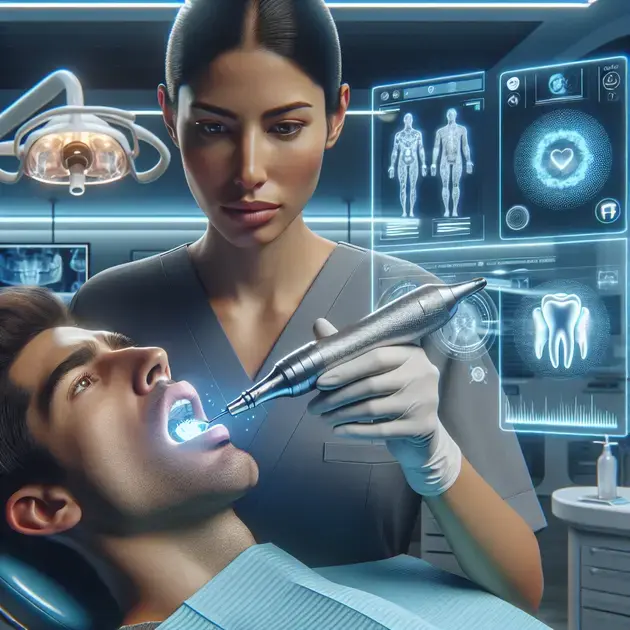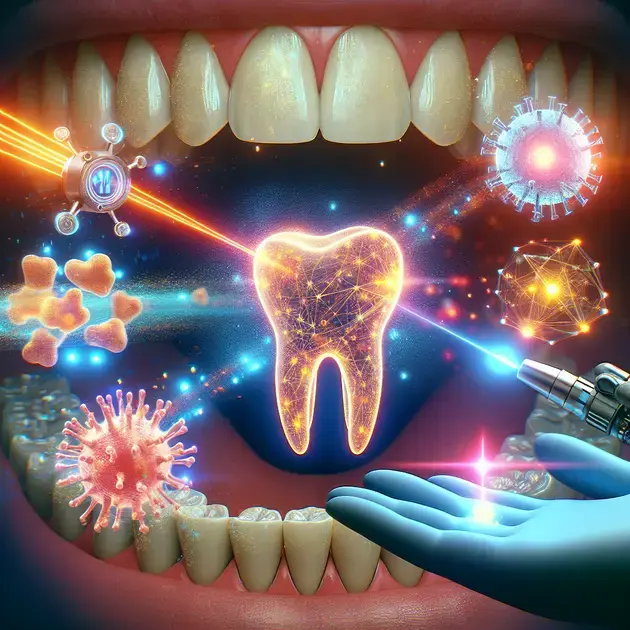When it comes to treating periodontitis, finding the most effective medication is crucial for restoring oral health. In this comprehensive guide, we will explore the various options available to combat this common and often serious gum disease.
With advancements in dental research and technology, there are now several innovative medications specifically designed to target the bacteria that cause periodontitis. From antibiotics to antimicrobial mouth rinses, this guide will provide valuable insights to help you make informed decisions about your treatment plan.

Finding the Right Medication for Periodontitis
Periodontitis is a serious gum infection that damages the soft tissue and destroys the bone supporting your teeth. Finding the right medication is crucial in managing this condition effectively. One innovative treatment option is the use of prescription antibiotics. These medications can help control bacterial growth and reduce inflammation in the gums.
A popular app that can help you find the right medication for periodontitis is “MediSafe.” This app allows you to set up reminders for taking your medication, track your progress, and even connect with your healthcare provider to discuss any concerns or side effects you may experience.
Another effective treatment for periodontitis is antimicrobial mouth rinses. These rinses can help reduce the amount of bacteria in your mouth, promoting gum health and preventing further complications. One recommended brand is “Listerine Antiseptic Mouthwash,” which has been clinically proven to reduce plaque and gingivitis.
When considering medication for periodontitis, it is important to consult with your dentist or periodontist. They can recommend the most suitable treatment based on the severity of your condition and your overall oral health. Always follow the prescribed dosage and instructions to ensure the medication is effective.
In addition to medication, maintaining a good oral hygiene routine is essential in managing periodontitis. This includes brushing your teeth twice a day, flossing regularly, and scheduling regular dental cleanings. Taking a holistic approach to your oral health can help improve the effectiveness of any medication prescribed for periodontitis.
Exploring Innovative Treatment Options
As technology advances, there are now more innovative treatment options available for periodontitis. One such option is laser therapy, which uses light energy to target and remove infected tissue in the gums. This minimally invasive procedure promotes faster healing and reduces the risk of complications.
An excellent resource for exploring innovative treatment options for periodontitis is the website “Perio.org.” This site provides detailed information on the latest advancements in periodontal care, including surgical techniques, medications, and preventive measures. By staying informed about these options, you can make empowered decisions about your oral health.
Another emerging treatment for periodontitis is probiotics. These beneficial bacteria can help restore balance in your oral microbiome, promoting gum health and reducing inflammation. One recommended probiotic supplement is “Hyperbiotics Pro-Dental,” which is specifically designed for oral health support.
In addition to traditional treatments, such as scaling and root planing, exploring innovative options can provide new avenues for managing periodontitis. Discussing these options with your dental provider can help tailor a treatment plan that best suits your individual needs and preferences.
Remember that not all innovative treatments may be suitable for everyone, so it is essential to consult with your dentist or periodontist before trying any new approach. By staying proactive and open-minded, you can explore a variety of treatment options to find the best solution for your periodontal health.
Making Informed Decisions for Your Oral Health
When it comes to your oral health, making informed decisions is key to maintaining a healthy smile. Understanding the importance of good oral hygiene practices and regular dental check-ups can help prevent conditions like periodontitis from developing or worsening.
One way to stay informed about your oral health is to use the “Colgate Dental Resource Center” app. This app provides education on various dental topics, including gum disease, treatment options, and preventive care. By utilizing this resource, you can arm yourself with knowledge to make informed decisions about your oral health.
In addition to using dental apps, seeking guidance from your dental provider is crucial in making informed decisions about treatment options for periodontitis. Your dentist can explain the benefits and risks of each treatment, answer any questions you may have, and work with you to create a personalized treatment plan.
Another aspect of making informed decisions for your oral health is understanding the role of nutrition in gum health. Consuming a balanced diet rich in vitamins and minerals can support overall oral health and reduce the risk of gum disease. Foods like leafy greens, lean protein, and fruits are excellent choices for promoting gum health.
By taking a proactive approach to your oral health and staying informed about the latest advancements in periodontal care, you can make educated decisions that benefit your overall well-being. Remember that your oral health is an essential part of your overall health, so investing time and effort in caring for your gums can have long-term benefits.

Exploring Novel Approaches to Periodontitis Treatment
When it comes to novel approaches for treating periodontitis, researchers are constantly exploring new methods to combat this prevalent oral health issue. One promising avenue of treatment involves incorporating probiotics into the treatment plan. Probiotics are beneficial bacteria that can help restore a healthy balance in the oral microbiome, reducing inflammation and supporting gum health. By promoting the growth of beneficial bacteria, probiotics can help inhibit the growth of harmful bacteria that contribute to periodontitis.
Another innovative approach to periodontitis treatment is the use of photodynamic therapy. This minimally invasive treatment involves the application of a photosensitive solution to the gums, which is then activated with a special light. The activated solution helps to eliminate harmful bacteria and reduce inflammation in the gums, promoting healing and tissue regeneration.
Nanoparticles are also being investigated as a novel treatment option for periodontitis. These tiny particles can be loaded with antimicrobial agents and targeted directly to the site of infection in the gums. By delivering medication in a highly targeted manner, nanoparticles have the potential to enhance the effectiveness of periodontitis treatment while minimizing side effects.
In addition to these cutting-edge approaches, researchers are also exploring the use of regenerative techniques such as growth factors and stem cells to promote tissue repair and regeneration in the gums. By harnessing the body’s natural healing mechanisms, these regenerative therapies show promise in restoring gum health and function in patients with periodontitis.
Overall, exploring novel approaches to periodontitis treatment is essential for improving outcomes and quality of life for patients affected by this condition. By staying at the forefront of research and innovation, dental professionals can provide patients with the most effective and advanced treatment options available.
Understanding Advanced Medication Solutions for Periodontitis
When traditional treatments for periodontitis are not sufficient, advanced medication solutions may be recommended to help effectively manage the condition. One such advanced medication solution is the use of antibiotic therapy, which involves the administration of antibiotics to target and eliminate the bacteria causing the infection in the gums. This targeted approach can help reduce inflammation, control infection, and promote healing in the gums.
In cases where periodontitis is severe or resistant to other forms of treatment, surgical intervention may be necessary. Surgical treatments for periodontitis can range from flap surgery to remove tartar and bacteria deep below the gumline to bone grafts and guided tissue regeneration to restore damaged bone and tissue in the gums. These advanced surgical procedures can help address the underlying issues contributing to periodontitis and promote long-term gum health.
In recent years, the development of antimicrobial mouth rinses and gels has provided additional options for managing periodontitis. These products contain active ingredients that target and eliminate harmful bacteria in the mouth, reducing inflammation and supporting gum health. When used in conjunction with regular brushing and flossing, antimicrobial mouth rinses and gels can help control the progression of periodontitis and maintain oral hygiene.
For patients with chronic or recurrent periodontitis, ongoing maintenance therapy may be necessary to prevent flare-ups and maintain gum health. This may involve regular deep cleanings, periodontal maintenance appointments, and the use of prescription-strength oral hygiene products to control bacterial growth in the mouth. By combining advanced medication solutions with proper oral hygiene practices, patients can effectively manage periodontitis and prevent further complications.
Overall, understanding advanced medication solutions for periodontitis is crucial for addressing the complex nature of this condition and providing patients with tailored treatment plans that promote optimal oral health and well-being.
A Comprehensive Overview of Periodontitis Medication Options
When it comes to medication options for treating periodontitis, there are several approaches that may be considered depending on the severity and progression of the condition. One common medication option is the use of topical antimicrobial agents, which are applied directly to the gums to target and eliminate bacteria causing the infection. These agents can help reduce inflammation, control bacterial growth, and promote healing in the gums.
In cases where periodontitis is more advanced, systemic antibiotics may be prescribed to help combat widespread bacterial infection in the mouth. These antibiotics can be taken orally and work to eliminate harmful bacteria throughout the body, including in the gums. However, systemic antibiotics are typically reserved for severe cases of periodontitis due to the potential for antibiotic resistance and side effects.
Anti-inflammatory medications such as nonsteroidal anti-inflammatory drugs (NSAIDs) may also be used to manage pain and reduce inflammation associated with periodontitis. By targeting inflammation in the gums, NSAIDs can help alleviate discomfort and support healing in the affected area. These medications are often used in conjunction with other treatment options to enhance their effectiveness.
In recent years, researchers have been exploring the potential benefits of host modulation therapy for treating periodontitis. This approach involves targeting the host response to infection by modulating the immune system’s inflammatory response. By regulating the body’s immune reaction, host modulation therapy aims to reduce tissue destruction and promote healing in the gums, ultimately improving outcomes for patients with periodontitis.
Overall, a comprehensive overview of periodontitis medication options underscores the importance of personalized treatment plans tailored to each patient’s unique needs. By considering the specific characteristics of the condition and the individual’s overall oral health, dental professionals can determine the most effective medication options to address periodontitis and support long-term gum health.
Conclusion
In conclusion, exploring novel approaches to treating periodontitis offers promising solutions for improving oral health outcomes. Incorporating probiotics into treatment plans can help restore a healthy balance in the oral microbiome, inhibiting harmful bacteria growth and promoting gum health. Similarly, photodynamic therapy and nanoparticle-based treatments showcase innovative methods to eliminate bacteria, reduce inflammation, and support tissue regeneration in the gums.
Understanding advanced medication solutions, such as antibiotic therapy and surgical interventions, becomes crucial for managing severe cases of periodontitis. These targeted approaches aim to control infection, promote healing, and address underlying issues contributing to the condition. Additionally, the development of antimicrobial mouth rinses and gels provides effective options for managing bacterial growth and maintaining oral hygiene.
By tailoring treatment plans with personalized medication options, anti-inflammatory drugs, and host modulation therapy, dental professionals can address the complexity of periodontitis and support long-term gum health. This comprehensive overview emphasizes the importance of considering individual needs and characteristics to provide the most effective medication options, ultimately improving outcomes and well-being for patients battling periodontitis.



